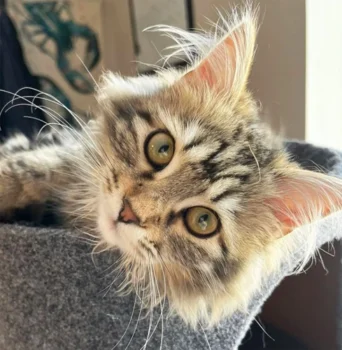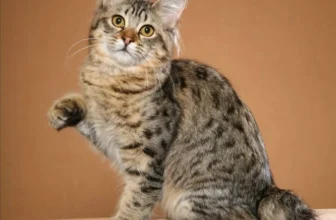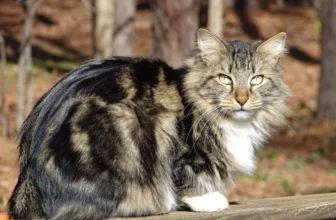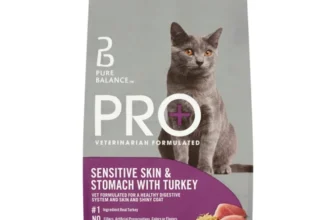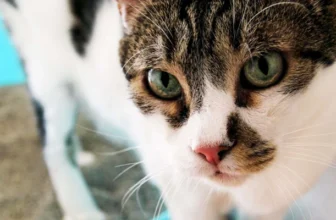As cat owners, we often overlook the importance of dental care for our feline friends. However, neglecting dental hygiene can lead to various health issues and discomfort for our furry companions. This is especially true for American Bobtail cats, who require regular dental care to maintain healthy teeth and gums. In this comprehensive guide, we’ll discuss the reasons behind your cat’s dental needs and explore effective tips for keeping your American Bobtail’s teeth clean and healthy. Whether you’re a first-time cat owner or a seasoned pro, this article will provide valuable insights and actionable steps to ensure your furry friend’s dental health. So, let’s dive in!
Understanding Your Cat’s Dental Needs
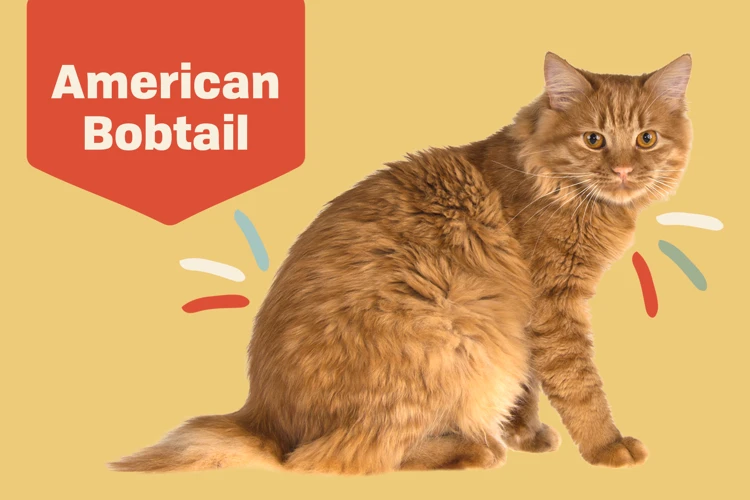
As a cat owner, it’s essential to understand your feline friend’s dental needs. While it may not be at the top of your priority list, maintaining good dental hygiene is important for the overall health and well-being of your American Bobtail. Poor dental hygiene can lead to a wide range of dental problems, such as bad breath, tooth decay, and gum disease, which can cause pain and discomfort for your cat. In this section, we will explore why dental hygiene is important for cats, how to identify dental problems, and tips for keeping your American Bobtail’s teeth clean and healthy. For more information on American Bobtail dental care, check out our guide on preventing dental problems.
Why Dental Hygiene is Important for Cats
Maintaining good dental hygiene in cats, including American Bobtails, is essential for their overall health and well-being. Poor dental hygiene can lead to a range of dental problems, including tooth decay, periodontal disease, and bad breath. These dental problems, if left untreated, can cause pain, discomfort, and other health issues that could significantly affect the quality of your American Bobtail’s life.
One of the key reasons why dental hygiene is important for cats is to prevent periodontal disease. This is a common condition that affects many cats, and it occurs when bacteria and food particles accumulate along the gum line and form plaque. Over time, the plaque hardens into tartar and causes inflammation of the gums. This can lead to several problems, such as bleeding gums, bad breath, and pain when eating. If left untreated, periodontal disease can lead to more severe health issues, such as tooth loss and even infections.
Ensuring your American Bobtail maintains good dental hygiene can prevent dental problems before they worsen. Regularly brushing your cat’s teeth, using dental wipes or pads, providing dental-friendly food and toys, and scheduling regular veterinary check-ups can help maintain good dental health for your feline friend. Many dental treats and chews can also help to remove plaque and prevent tartar buildup, which is why incorporating them into your cat’s diet can be beneficial.
Maintaining good dental hygiene in American Bobtails is crucial to help prevent dental problems that can cause pain, discomfort, and other health issues. By following the tips and suggestions highlighted in this article, you can help keep your cat’s teeth clean and healthy. For more information on dental problems and prevention methods for American Bobtails, click here.
Signs of Dental Problems in American Bobtails
| Signs of Dental Problems in American Bobtails |
|---|
| 1. Bad breath: Bad breath can be a sign of gum disease or tooth decay. If your American Bobtail has persistent bad breath, it could be time for a dental check-up. |
| 2. Discolored teeth: Discoloration can be a sign of tooth decay, and can range from yellowing to dark brown. Regular check-ups with your vet can help catch and treat dental issues like this early on. |
| 3. Difficulty eating or chewing: If your cat has trouble eating, especially if they seem to favor one side of their mouth, it could be a sign of dental pain or damage. |
| 4. Excessive drooling: While drooling is common in cats, excessive drooling can be a sign of dental issues. If your American Bobtail is drooling more than usual, it may be time for a vet visit. |
| 5. Pawing at the mouth: If your cat is pawing at their mouth or face, it could be a sign of dental pain or discomfort. Check your cat’s mouth for any visible issues, but keep in mind that dental problems often occur below the gumline. |
If you notice any of these signs in your American Bobtail, it’s important to address the issue promptly. Left untreated, dental problems can lead to pain, infection, and even tooth loss. Regular check-ups with your vet and consistent oral care at home can help prevent these issues from developing. For more information on preventing dental problems in American Bobtails, please visit our article on preventing dental problems.
Tips for Keeping Your American Bobtail’s Teeth Clean
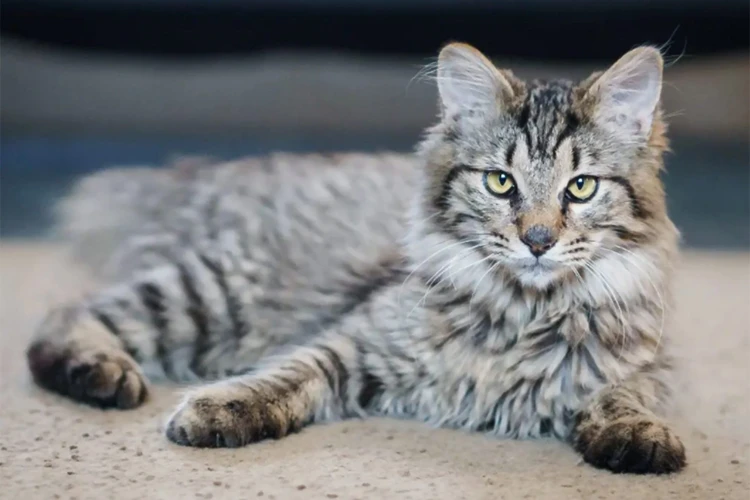
Ensuring good dental hygiene is an important part of keeping your American Bobtail healthy and happy. Poor oral care can lead to a variety of health issues, from bad breath to serious gum disease that can affect your feline’s overall well-being. Fortunately, there are several things you can do to promote good dental health in your furry friend. Here are some tips for keeping your American Bobtail’s teeth clean, so you can enjoy your furry companion’s company for years to come. To learn more about brushing your cat’s teeth, check out our American Bobtail Teeth Brushing Guide, which provides step-by-step instructions on the best way to brush your cat’s teeth.
Introduce Brushing Early On
Introducing Brushing Early On
Starting early is key when it comes to establishing oral hygiene habits for your American Bobtail. This is because cats typically need to be introduced to toothbrushing gradually and with patience in order to feel comfortable with the process.
To start, introduce your cat to the toothbrush and toothpaste by allowing them to sniff and lick the brush and toothpaste (use a cat-specific toothpaste). This helps your cat get used to the taste and texture.
Then, gently rub the toothbrush on your cat’s teeth and gums for a few seconds at a time while praising and petting them. Gradually increase the time and frequency of brushing sessions until your cat is comfortable with a full brushing.
It’s also important to reward good behavior during these sessions, such as with treats, playtime, or extra cuddles.
| Do: | Don’t: |
|---|---|
|
|
Remember, the goal is to make brushing a positive experience for your American Bobtail. With patience and consistency, they can develop good dental hygiene habits that can lead to a healthy, happy life.
For more information on dental-friendly toys for your American Bobtail, check out our article on the 5 best dental toys for American Bobtail cats.
Provide Dental-Friendly Food and Toys
One of the ways to keep your American Bobtail’s teeth clean and healthy is to provide dental-friendly food and toys. Feeding your cat the right kind of food can help clean their teeth as they eat. Dry cat food is better for dental care than canned food, as it doesn’t stick to the teeth like wet food does. You can also switch to specially-formulated cat food that promotes dental health. These types of cat food have a texture and shape that can help reduce plaque and tartar build-up on teeth.
Another way to promote dental health is to offer your American Bobtail dental-friendly toys to play with. Chew toys designed for cats can help clean teeth and massage gums while your cat chews on them. The act of chewing can scrape off food particles and tartar from your cat’s teeth. Dental chew toys are also designed to be tough and durable so your cat can chew on them for an extended period of time.
Here’s a table summarizing some dental-friendly food and toys for American Bobtails:
| Dental-Friendly Food | Dental-Friendly Toys |
|---|---|
| Dry cat food | Dental chew toys |
| Specially-formulated cat food for dental health | Catnip toys (encourages chewing) |
| Hard cat treats | Rope toys (can be used for tug-of-war) |
While providing dental-friendly food and toys can aid in maintaining dental health, it’s important to remember that they aren’t a substitute for regular brushing and dental check-ups with your veterinarian. Regular dental cleanings can help remove any built-up plaque and tartar that may have accumulated even with proper oral care. For more information on dental treatments and vet visits for your American Bobtail, click here. Additionally, for tips on choosing the best cat food for dental health, click here, and for bad breath treatments for cats, click here.
Schedule Regular Veterinary Check-Ups
Regular veterinary check-ups are crucial for maintaining your American Bobtail’s dental health. During these visits, your veterinarian will perform a thorough examination of your cat’s teeth and gums. This is often the most effective way to catch dental problems before they become bigger issues. If left untreated, dental problems can lead to tooth decay, gum disease, and potentially serious health issues.
During a routine check-up, your veterinarian will also be able to give you advice on how to care for your cat’s teeth at home. This includes recommendations on brushing techniques, dental products, and any particular concerns that may be unique to your American Bobtail’s dental health.
Below are some key benefits to scheduling regular veterinary check-ups:
- Preventative Care: Regular check-ups can help prevent dental problems before they start, such as plaque buildup or gingivitis.
- Expert Advice: Your veterinarian can give you expert advice on how to properly care for your American Bobtail’s teeth at home, including the best tools and techniques to use.
- Evaluating Overall Health: Your cat’s dental health can be a good indicator of their overall health. During a check-up, your veterinarian can evaluate your cat’s dental health as well as other health concerns they may have.
- Early Detection: Regular check-ups can help detect dental problems early on, so they can be treated and resolved before they become more serious and potentially costly.
By scheduling regular check-ups with your veterinarian, you can ensure that your American Bobtail’s teeth remain healthy and their overall health is well-maintained. Don’t forget to ask your veterinarian about dental treatments for American Bobtails, such as dental chews, to complement your cat’s oral care routine.
Consider Dental Treats and Chews
Consider Dental Treats and Chews: Dental treats and chews can be a great addition to your American Bobtail’s oral care routine. Not only do they help clean teeth and freshen breath, but they can also provide mental stimulation and playtime for your cat. When choosing dental treats or chews, look for products that are specifically designed for cats and have the Veterinary Oral Health Council (VOHC) seal of approval. Such products have met strict standards for efficacy and safety.
Some dental treats and chews also contain special enzymes that break down plaque and tartar, further promoting dental health. These can be particularly helpful if your cat is resistant to brushing or undergoing a dental cleaning.
Remember to supervise your cat while they are chewing on dental treats or toys to avoid any choking hazards. Additionally, too many treats can lead to weight gain and other health problems, so be sure to follow the recommended serving sizes.
Some recommended dental treats and chews for American Bobtails include:
- Dentalife Oral Care Cat Treats
- Feline Greenies Dental Treats
- Whiskas Temptations Cat Treats
- Hartz Dentist’s Best Dental Chews
- Purina Pro Plan Veterinary Diets Dental Chewz
By incorporating dental treats and chews into your American Bobtail’s oral care routine, you can help maintain their dental health and prevent dental problems from occurring.
If you want to learn more about different dental treatments for American Bobtails, check out our article on dental treatments for American Bobtails.
Be Consistent with Oral Care
Consistency is key when it comes to maintaining good oral hygiene in American Bobtails. Below are some important factors to keep in mind:
| Factor | Description |
| Frequency of Brushing | Brush your cat’s teeth at least 2-3 times a week. |
| Keep a Routine | Add brushing to your pet care routine to make it a habit for both you and your American Bobtail. |
| Consistent Diet | Feed food and treats that are specifically designed to improve dental hygiene, in addition to maintaining a consistent diet. |
| Stick to Oral Care Products | Stick to using products that are designed for cats when it comes to oral hygiene. Human toothpaste can be harmful to cats. |
| Regular Check-Ups | Schedule regular dental check-ups with your veterinarian to detect any dental problems in their early stages. |
Being consistent with oral care may take some patience and persistence, but it is important for your American Bobtail’s overall health and well-being. By brushing regularly, providing dental-friendly food and toys, and scheduling regular check-ups with your veterinarian, you can ensure that your cat’s teeth stay clean and healthy.
How to Brush Your Cat’s Teeth
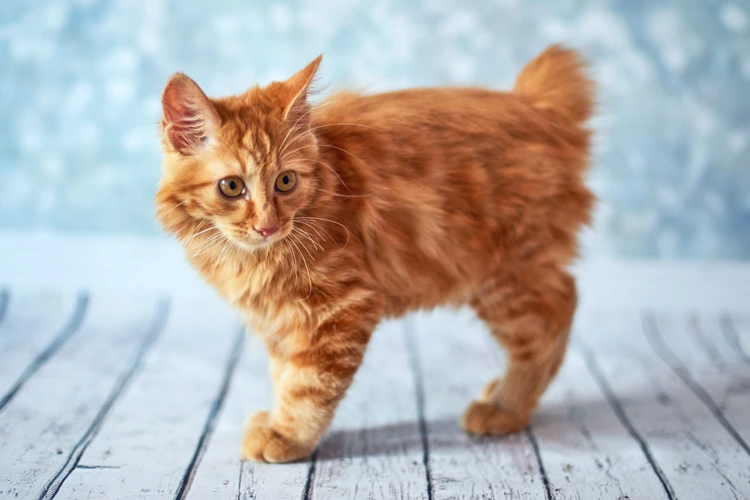
If you’re a new cat owner, brushing your cat’s teeth might seem like a daunting task. However, just like with humans, maintaining good oral hygiene is important for your feline companion’s overall health. Regular brushing can help prevent dental problems such as tartar buildup and gum disease. In this section, we’ll go over the steps to successfully brush your American Bobtail’s teeth and keep their pearly whites healthy. so Let’s dive into the process step-by-step.
Gather the Right Supplies
As with any task, having the right tools for the job can make all the difference in the world. This is especially true when it comes to brushing your American Bobtail’s teeth. Before you start, it’s important to gather the right supplies to make the process as smooth and efficient as possible.
Here’s a checklist of the supplies you’ll need:
| Supply | Description |
|---|---|
| Toothbrush | Use a soft-bristled toothbrush specifically designed for cats. Avoid using a human toothbrush, as the bristles may be too hard and could hurt their gums. |
| Toothpaste | Use toothpaste specifically formulated for cats. Human toothpaste contains ingredients that can be harmful to cats if swallowed. |
| Treats or Rewards | Having a treat or reward on hand can help make the toothbrushing experience more pleasant for your cat. |
| Towel or Blanket | Have a towel or blanket nearby to wrap your cat in while brushing their teeth. This will help keep them calm and prevent them from squirming. |
Remember: Never use human toothpaste or any other products that are not specifically formulated for cats. These products can be toxic and cause harm to your beloved pet.
Introduce Your Cat to the Toothbrush
Introducing Your Cat to the Toothbrush:
Introducing your American Bobtail to a toothbrush may seem like a daunting task, but it is crucial for their dental health. To make it less overwhelming for both you and your cat, follow these steps:
| Step 1: | Choose a toothbrush that is specifically designed for cats. It should have soft bristles and a small head. Avoid using human toothbrushes, as they may be too harsh for your cat’s delicate gums and teeth. |
| Step 2: | Let your cat smell and explore the toothbrush on their own terms. Place the toothbrush near their food or toys so that they get accustomed to its presence. Make sure your cat is comfortable with the toothbrush before moving to the next step. |
| Step 3: | Dip the toothbrush in something tasty, such as tuna water, and allow your cat to lick it off. This will help create a positive association with the toothbrush. |
| Step 4: | Once your cat is comfortable with the toothbrush and the taste of tuna water, try gently touching their teeth and gums with the toothbrush. Start with just a few seconds and gradually increase the time as your cat becomes more comfortable. |
| Step 5: | Be patient and consistent in your approach. It may take several weeks for your cat to fully accept and enjoy toothbrushing. If your cat becomes agitated or stressed, stop and try again later. |
By introducing your American Bobtail to the toothbrush slowly and consistently, you can help them develop good dental habits and avoid potential dental problems in the future.
Start Brushing Slowly and Gently
Brushing your American Bobtail’s teeth may seem like a daunting task, but it is essential for maintaining their dental health. When starting to brush your cat’s teeth, it is crucial to take it slow and be gentle to make the experience as comfortable as possible for your furry friend.
Here are some tips for starting to brush your cat’s teeth:
- Choose a time when your cat is relaxed and calm, such as after a meal or a nap.
- Sit in a comfortable position with your cat securely in your lap or on a table, and approach them slowly and calmly.
- Put a small amount of cat toothpaste on your finger and allow your cat to smell and taste it. This will help get them used to the toothpaste and feel more comfortable with the process.
- Once your cat is accustomed to the toothpaste, put a small amount on the toothbrush and allow them to taste it before brushing.
- Slowly and gently start brushing their teeth, using circular motions and paying attention to the back molars where plaque and tartar can build up.
- Stop if your cat seems uncomfortable or agitated, and try again later when they are calm and relaxed.
By starting slowly and gently, you can help your American Bobtail feel at ease during the brushing process and make it a more positive experience overall. Remember to use positive reinforcement, such as treats and praise, to encourage good behavior and make the experience enjoyable for your feline friend.
Offer Rewards and Praise
Giving your American Bobtail a reward after brushing their teeth can help make the whole experience more positive and enjoyable for them. Using rewards and praise can help reinforce good behavior and encourage your cat to be more cooperative during future brushing sessions.
Here are some ways to offer rewards and praise to your American Bobtail:
| Reward Type | Description |
|---|---|
| Treats | Offer your cat one of their favorite treats immediately after brushing their teeth. |
| Playtime | Engage in playtime with your cat as a way of rewarding them for their cooperation during brushing. |
| Verbal Praise | Use a positive and upbeat tone to praise your cat for letting you brush their teeth. You can say things like “Good job!” or “You’re such a good kitty!” |
| Physical Affection | Offer your cat cuddles, strokes and pets as a way of praising and rewarding them for their good behavior. |
It’s important to note that rewards should be given immediately after brushing your cat’s teeth. This will help your American Bobtail associate the reward with the action of having their teeth brushed, making it more likely that they will be willing to have their teeth brushed in the future.
In addition to rewards, offering verbal praise is also important. The tone of your voice and the words you choose can have a big impact on your cat’s behavior. Use a warm, positive tone and choose encouraging words to help reinforce good behavior.
By offering rewards and praise, you can help make teeth brushing a more positive and enjoyable experience for your American Bobtail. This will encourage them to be more cooperative during future brushing sessions, making dental care easier for both you and your cat.
Caring for Your Cat’s Teeth Without Brushing
When it comes to maintaining your American Bobtail’s dental health, brushing their teeth might not be an easy task. You might face challenges while trying to brush your cat’s teeth or your cat may simply refuse. But, there are other ways to care for your cat’s teeth without brushing. Here are some alternative methods that you can try to keep your cat’s teeth clean and healthy.
Use Dental Wipes or Pads
Keeping your American Bobtail’s teeth clean is crucial for their overall health and wellbeing. If you are unable to brush your cat’s teeth regularly, one alternative option is to use dental wipes or pads. Dental wipes or pads are specifically designed to remove plaque and tartar buildup on cat’s teeth while freshening their breath.
Here are some benefits of using dental wipes or pads for your American Bobtail:
| Benefits | Explanation |
| Easy to Use | Using dental wipes or pads is simple and straightforward, making it an easy option for pet owners who are unable to brush their cat’s teeth. |
| Effective at Removing Plaque and Tartar | Dental wipes or pads are specially textured to wipe away plaque and tartar buildup on your cat’s teeth. This helps reduce the risk of dental problems in the future. |
| Helps Freshen Breath | Using dental wipes or pads can also help freshen your cat’s breath. This is especially beneficial if your American Bobtail has bad breath. |
When selecting dental wipes or pads for your cat, be sure to choose ones that are specifically designed for cats. Products made for dogs may contain ingredients that are harmful to cats.
To use dental wipes or pads, first, make sure your cat is comfortable and calm. Then, gently lift their lip to access their teeth and gums. Rub the dental wipe or pad gently over their teeth and gums, focusing on areas where plaque and tartar buildup are most common.
While dental wipes or pads are a good alternative to brushing, they should not replace regular veterinarian check-ups or dental cleanings. It’s important to schedule regular visits with your veterinarian to ensure your American Bobtail’s teeth and gums are healthy.
Provide Dental Treats and Chews
Dental treats and chews can be a great addition to your American Bobtail’s oral care routine. These treats are specifically designed to help clean your cat’s teeth and freshen their breath while also providing a tasty snack. When shopping for dental treats, look for products that have the Veterinary Oral Health Council (VOHC) seal of approval.
Benefits of Dental Treats and Chews:
- Help remove plaque and tartar buildup
- Promote fresh breath
- Encourage chewing which can strengthen teeth and gums
- Provide a tasty snack for your cat
When introducing dental treats and chews to your American Bobtail, start by offering a small piece and monitor their reaction. Some cats may not take to the treats right away, so it may take some experimenting to find a product they enjoy. It’s also important to remember that while dental treats and chews can help maintain your cat’s oral health, they should not be a substitute for regular tooth brushing and veterinary cleanings.
Types of Dental Treats and Chews:
- Dental sticks or chews
- Dental kibble
- Dental sprays or gels
- Dental toys
When selecting a dental treat or chew, consider your cat’s age, dental health, and any dietary restrictions they may have. It’s also important to follow the manufacturer’s instructions for the recommended serving size and frequency.
Remember to always supervise your cat when giving them dental treats or chews to ensure they are chewing and not swallowing them whole. If you have any concerns about your cat’s oral health, consult with your veterinarian for the best course of action.
Incorporating dental treats and chews into your American Bobtail’s oral care routine can be a simple and tasty way to help keep their teeth clean and healthy.
Schedule Regular Dental Cleanings
As with humans, a professional cleaning is necessary to maintain the oral health of your American Bobtail. Regular dental check-ups can help identify and prevent dental problems before they become serious issues. It is recommended by veterinarians to schedule a dental cleaning for your beloved feline at least once a year.
During the appointment, a veterinarian or a veterinary technician will perform a thorough cleaning of your cat’s teeth, including removing built-up tartar and plaque, which can lead to serious dental problems like tooth decay and gum disease. They will also examine your cat’s mouth for signs of any dental issues, such as inflamed gums, broken teeth, or cavities.
While a professional cleaning is necessary for your cat’s optimal oral health, it is also important to maintain regular at-home dental care on a daily basis. This not only helps keep your cat’s teeth clean, but it also helps to prevent any potential dental problems between cleanings.
During the cleaning appointment, the vet may also provide some recommendations based on the current state of your cat’s teeth and gums. They may recommend specific dental products to use, such as dental treats and chews, or suggest a particular diet to improve your cat’s oral health.
Regular dental cleanings may seem like an added expense and hassle, but it is an essential component of your American Bobtail’s overall health and wellbeing. By scheduling these appointments, you are ensuring that your feline companion maintains good oral health, which can help prevent other health issues in the future.
| Benefits of Regular Dental Cleanings |
|---|
| Identify and prevent dental problems |
| Remove built-up tartar and plaque |
| Examine mouth for any dental issues |
| Recommendations for specific dental products |
| Ensure good oral health |
Conclusion
In conclusion, taking care of your American Bobtail’s dental health is crucial for their overall well-being. Neglecting their oral hygiene can lead to serious dental problems, pain, and even more severe health issues.
Remember to start the oral care routine early on, be consistent with brushing and providing dental-friendly toys and treats, and schedule regular check-ups with the veterinarian.
Brushing your cat’s teeth may seem daunting, but with patience, the right supplies, and positive reinforcement, it can become a simple and routine part of your cat’s care.
If your cat is resistant to brushing, there are still options for maintaining their dental health, such as using dental wipes or scheduling professional dental cleanings.
By prioritizing your American Bobtail’s dental needs, you can help ensure they lead a long, healthy, and happy life. So make it a top priority to keep their teeth clean and healthy, and enjoy many years of snuggles and playtime with your furry friend.
Frequently Asked Questions
1. How often should I brush my American Bobtail’s teeth?
You should aim to brush your American Bobtail’s teeth at least 2-3 times a week to maintain good oral hygiene.
2. Is it safe to use human toothpaste for my American Bobtail?
No, human toothpaste contains ingredients like fluoride that can be harmful to cats. You should use a toothpaste specifically designed for cats.
3. Can dental treats replace brushing my American Bobtail’s teeth?
No, dental treats can help to complement your cat’s oral care routine, but they cannot replace the benefits of regular brushing.
4. How do I know if my American Bobtail is experiencing dental pain?
You may notice your cat avoiding hard food, drooling excessively, or pawing at their mouth. It is best to schedule a vet appointment if you suspect any dental issues.
5. What kind of toys can help keep my American Bobtail’s teeth clean?
Chew toys and dental toys that are specifically designed to promote good oral hygiene can help keep your cat’s teeth clean and healthy.
6. At what age should I start brushing my American Bobtail’s teeth?
You should begin introducing your cat to tooth brushing at a young age, ideally when they are kittens. This will help them become familiar and comfortable with the process.
7. Can I use a regular toothbrush for my American Bobtail?
No, regular toothbrushes can be too abrasive for your cat’s teeth and gums. You should use a toothbrush designed specifically for cats.
8. How often should I schedule dental cleanings for my American Bobtail?
You should schedule dental cleanings for your cat at least once a year, or as recommended by your vet based on their individual needs.
9. What should I do if my American Bobtail refuses to let me brush their teeth?
Try to gradually introduce your cat to tooth brushing and use positive reinforcement like treats and praise. If they still refuse, seek advice from your vet for alternatives to maintain oral hygiene.
10. Can dental issues in American Bobtails affect their overall health?
Yes, dental issues can lead to pain, infections, and even affect other organs like the heart if left untreated. It is crucial to maintain good oral hygiene for the overall health of your cat.

